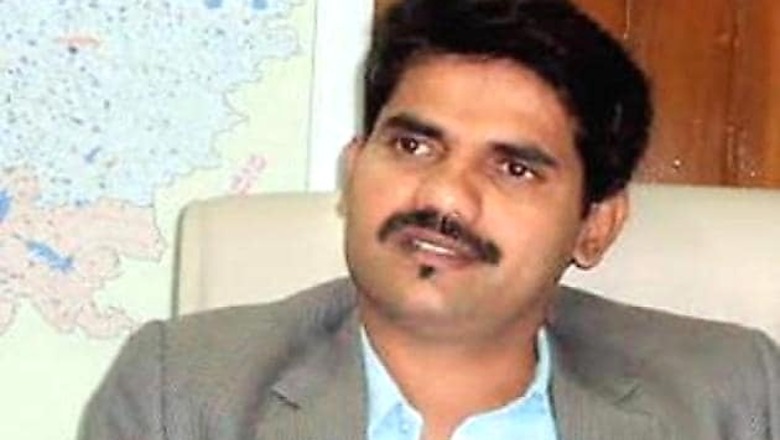
views
Ever since the Congress fared poorly in the Lok Sabha elections from Karnataka, its government in the state has been stumbling from one crisis to another. The latest imbroglio is the shoddy way in which the investigation into the unfortunate death of a young IAS officer was handled. This episode has seen multiple factors getting messily mixed up. It has also seen political actors using every opportunity (sadly) to draw the maximum political mileage from a distressing tragedy.
Three issues merit attention in any discussion on the chain of events subsequent to the death of the officer. First, the manner in which the government in the state dealt with the issue. Secondly, the range of tangential issues that got linked to the debate and often sidetracked attention from what needed to be focused upon and finally, its wider implications for the centre-state relations.
From the moment the news of the tragedy broke out, the manner in which those who represented the government dealt with the issue gave ample room for criticism. Statements by those in power, even as the investigations were under way, on what appeared to have caused the death of the officer were clearly uncalled for, reflecting a lack of maturity and understanding of the gravity of the situation. The selective leaks of details (from whichever source, some of which are now being contradicted) did little to cloak the investigation process with a respectable degree of credibility. The avoidable controversy relating to the transfer and subsequent reinstatement of the officer who headed the CID was further proof of the shoddy handling of the situation. It also appeared that many in the Congress saw an opportunity to settle scores with rival camps within the party and/or to embarrass the Chief Minister. It did not help the government that the Home Minister of the State had been at the centre of many a controversy in the past and was the focus of attention in the present episode also. The unhappiness of a section of the senior bureaucracy was also evident. The fact that an officer of the rank of Additional Chief Secretary was openly critical of the stand of the government and went on record (both in the print and electronic media) to express his reservations was reflective of the intensity of disquiet within the bureaucracy on the way the government handled this sensitive issue. The laboured argument that the government finally made that we handed over the case to the CBI once the CID probe was done, did not sound very convincing and the 'flip-flop' was clearly on account of directions from the central leadership of the party. The entire episode reflects a clear 'drift' in the government and its inability to take a firm position after nuanced analysis of the situation at hand.
This episode is also indicative of how different political parties would like to gain political mileage of every possible development, irrespective of its wider implications and often unmindful of the sensitive core issues involved. The fact that the officer in question had built up a reputation of being honest, efficient and conscientious was clearly evident in the public expression of shock, anger and grief at his untimely and unnatural death. The fact that he had waged a relentless battle against corruption and illegal practices both as Deputy Commissioner of Kolar and in the position he held at the time of his death was clearly apparent. Tangential questions on what caused his early transfer from Kolar to Bengaluru hit the headlines and soon became the focus of attention. Audio tapes allegedly linked to the role of elected representatives and the sand mafia in forcing his transfer surfaced. This was to challenge the statement of the Chief Minister on why the officer was transferred and also to draw attention to the fact that elected representatives seemed privy to these decisions even before they were formally endorsed by the Cabinet. The aim clearly appeared to be to place the government on the back-foot and not necessarily to get to the core of what led to the untimely death of the officer. Such tragedies require an element of sensitivity with which they are investigated and probed. A public slanging match between rival political actors shows scant respect and regard for the gravity of the tragedy.
Finally, the episode has also raised questions on emerging issues in centre-state relations and the clear need for the autonomy of investigating agencies. The demand for the hand over of the case from the state CID to the central CBI has important implications. The underlying assumption is that the CBI is capable of a more, free and fair investigation as compared to the CID. In the past too, we have had instances when there has been a demand to move out cases from a state on the ground of ensuring an impartial investigation. Given the fact that many of those who have been demanding a CBI probe in the current case have themselves spewed venom on the CBI in the past for being partisan and biased, is indicative of the desire to score political points. It would also be relevant to note that those favouring a CBI probe have in the past (when in power) supported a CID investigation into matters. This episode points out to the need to ensure the autonomy of both the CID and CBI and insulate them from political influence and make them transparently insensitive to political cues.
The state has lost a young officer who was an asset to the State administration. In investigating his untimely death, we would have done justice to his contribution by not making it a fit issue to settle political scores. Our system of investigation into sensitive issues, at whichever level, needs to be insulated from political influence. This alone will ensure fair play in any process of investigation.
(The author is a keen student of political developments in Karnataka and the Pro Vice Chancelllor of Jain University)













Comments
0 comment